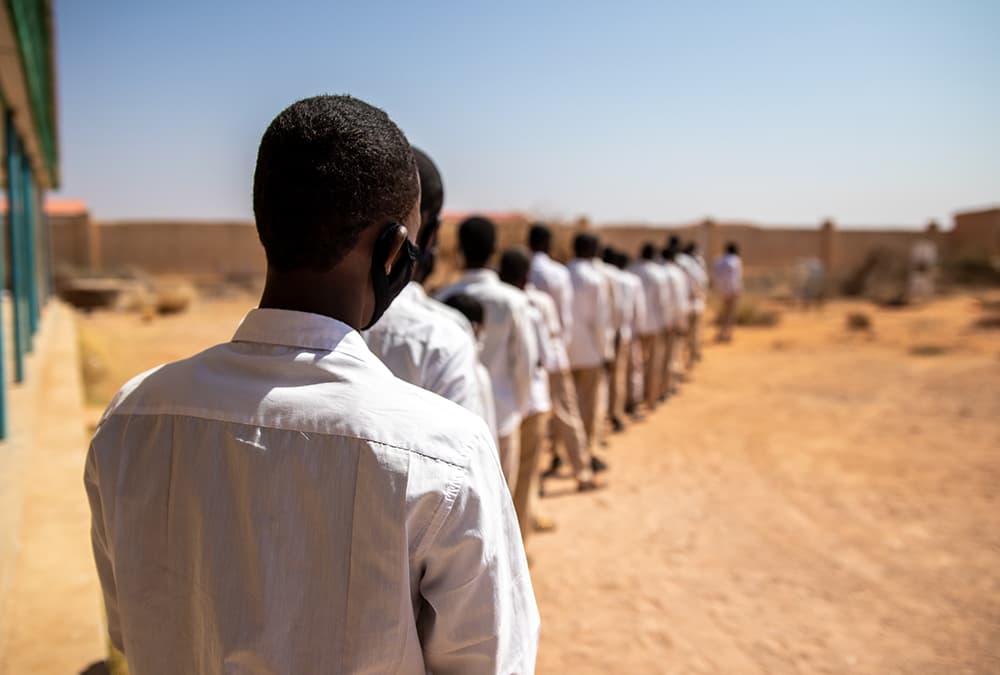Water shortages are threatening the dreams of Somali children
“There’s a drought right now and that means sometimes we don’t have enough water. When we get the water, we worry about using it too quickly,” says Nuura, a 15-year-old student in Somalia.
“I want to study to be a doctor because I want to work for my community. When I see women working as doctors, I see them as role models,” she says.
In Somalia, where already less than 50 percent of children go to school, a combination of COVID-19, conflict and climate shocks - which increase the length and intensity of droughts like this one - has significantly increased the number of children who are out of school.
UNICEF estimates that there are now more than three million children out of school in Somalia. In its report, UNICEF proposes that building resilience to community displacement and emergencies, such as drought, are fundamental to the solution.
“[If the school closed], I would be worried about the gap in my studies,” Nuura explains. “Last year, when the coronavirus started, the school closed for two months. During the closure I studied from home and helped with the housework. I was worried about the future and if the school would reopen.”
A third of the Somali population is now in crisis
Reduced rainfall, critical water shortages and drought-like conditions are pushing the number of children and adults who need critical support to 5.9 million - a third of the population and an increase of 700,000 people compared to 2020.
Nuura and her school friend Shucayb are feeling the brunt of the growing climate crisis in Somalia and if urgent action is not taken, an alarming number will face hunger, school closures due to water shortages, displacement and exploitation in 2022.
Shucayb, a 12-year-old student who also hopes to be a doctor, explains the toll of the uncertainty brought on by the drought.
“The drought has made it difficult for the community. We only have a little bit of water left and if that dries up, then the community will have to move to another place where there is water. I’d be sad if this happens because the school would close, and I’d have no choice but to go with my family,” he says.

Children line up for water at a school in Somalia
Photo: Sacha Myers / Save the Children
Clean water helps students stay in school
Save the Children continues to prioritise the needs of the most vulnerable and marginalised children and is ramping up its humanitarian response to meet children’s immediate needs. Thanks to our compassionate supporters, we’re providing water for drought-stricken communities and implementing water trucking and food programs at schools to encourage children to stay in school.